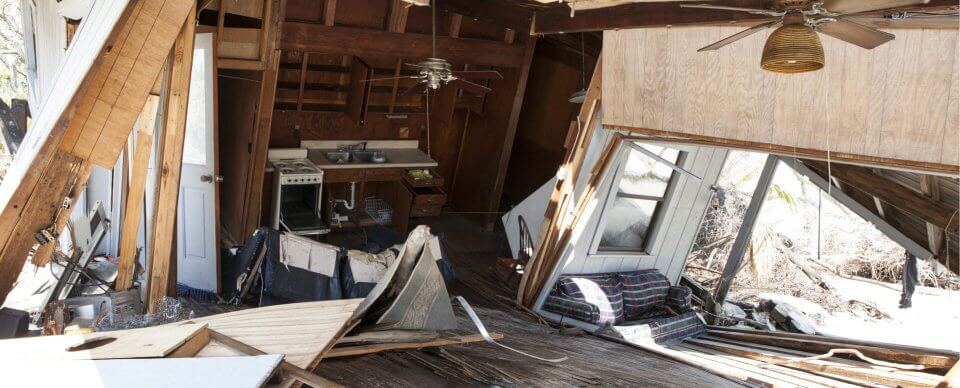
This hurricane season has been relentless, with Hurricane Helene tearing through Florida, Georgia, the Carolinas, and beyond. Cities like Asheville were left devastated, dealing with widespread flooding, power outages, and major property damage. Many are still recovering, having lost homes and personal belongings. Now, with Hurricane Milton in Florida, it’s a reminder that there’s no time to let your guard down. These storms can cause massive destruction—flooding, wind damage, roof collapses, and property loss.
To help protect your family and minimize damage and insurance claims, here are some steps to help you prepare before and what to do after the storm.
How to Prepare Before a Hurricane Strikes
It all begins with personal safety ahead of any storm. Prepare an evacuation plan for your family and identify the nearest storm shelter. Make sure you have an hurricane emergency kit in your car. Be sure to have hurricane survival supplies, which include the following:
- Plenty of bottled water
- First Aid kit
- Flashlights (with extra batteries)
- Battery-operated radio
- Three or more days of non-perishable food items
- Blankets
- Extra clothing
- Prescription drugs (as required by family members)
- Eye glasses
- Personal hygiene supplies
- Cash for at least 3 days
- Your pet’s leash/collar/food
How to File an Insurance Claim After a Storm
The first few days following a natural disaster are often confusing and stress-filled. Once you’re confident everyone you care about is okay – it’s important for you to focus on contacting your insurance company and filing your claim(s) as quickly as possible.
Make sure you carry your homeowners policy number and other relevant information with you at all times so you can refer to it easily should everything you own be destroyed by the storm. Time may be of the essence as some policies may require you make notification within a set time frame.
As is often the case, severe damage caused by devastating storms can take years to settle with insurers and damage can take years to repair. So, be aware of this.
Document Damage Before Cleanup
Take photographs/video of the damage before you begin clean-up or repairs. After you’ve done the preliminary inventory and documented the damage, make the repairs you deem necessary to prevent any further damage to your home and property
Start by covering broken windows, leaking roofs, and damaged walls, but DO NOT make permanent repairs until your insurance company has inspected the property and all parties have reached an agreement on the cost of repairs. If available, provide the claims adjuster with records of any improvements or modifications you may have made prior to the damage.
Receipts will be vital. Save them all, including those from the temporary repairs, such as boarding up the windows or doors.
Should your home be damaged beyond repair or to the extent that you cannot live there safely, ask your insurance company or insurance agent if you have coverage for additional living expenses. Chances are you do.
Stay Calm and Organized
It goes without saying that, after such a stressful event, tempers may be short, but staying calm and cooperating fully with the insurance company is to your advantage. Ask what documents, forms and data you need to file the claim. By keeping a diary, you’ll have a record of all conversations with the insurance company and your insurance agent, including names, times and dates of the calls, including visits and important contact information.
Resolving Homeowners Insurance Disputes
In case you have a disagreement with the adjuster or calls aren’t returned in a timely manner, you can refer to your notes. Furthermore, if you believe you are being treated unfairly, contact your local department of insurance.
Be prepared and stay safe.



